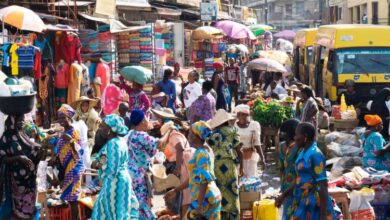2023 and Nigeria’s Abiding Question of Leadership
Nigeria is in the grip of a particularly benighted conception of the task of governance.

At present, Nigeria is in the grip of a particularly benighted conception of the task of governance. Add the clumsy attempts to resolve the adverse and worsening security situation to the economic one, and you get a sense of the nature of this leadership. Until we wrest the country from this coterie of leaders, then, the progress towards designing solutions to the many challenges Nigeria now faces will be an exercise in futility.
More than three decades after flag-independence, Nigeria is at a critical moment in its development. A point of inflection, even. As with most tipping points, the next addition (whether this be an event, process, and or person) to its case load could lead to an irreversible effect or change ― the fabled straw that finally does the camel’s back in. On current form, it is fair to think that this change, whatever the trigger and however it comes about, will be a negative event ― in other words, that this ill-starred camel will finally succumb to its burden rather than soldier on. Interestingly, the pass we are at in this chapter of accidents is in spite of the fact that (and not because) we have general elections scheduled for next year. Or that the politicking ahead of these elections have not been anything to write home about.
Instead, a sneak peek at the content of most missives sent back home this season will reveal an increasing concern with how the cost of living has risen so rapidly over the last four years, that living is becoming impossible. The relevant authorities continue to argue that the rising costs of living in Nigeria is a trade-off that the citizenry must bear for the economic growth that they are engineering. The difficulty with this take is that we are invited to conclude that this must be growth that is not designed to produce jobs. For one, the unemployment rate for the country is so high that the misery index long crossed the 50 per cent mark. Amongst the youth, and this is not to belabour the point, joblessness is even worse. The strike by members of the Academic Staff Union of Universities (ASUU), on the other hand, raises the question of the nature of government investment designed to drive growth.
One could be forgiven, therefore, for thinking that the challenge of the current election cycle is to find candidates for political office across the three tiers of government with clear perspectives on how to wrestle with these myriad economic challenges from next year. Alas, the story of how we ended up in the current cul-de-sac suggests otherwise.
If not in social capital, then where is government’s spend going? Infrastructure, I am often told. But basic costs continue to rise. Especially for businesses. This ordinarily means that the investment in infrastructure is either of a variety that has a long lag between being put in place and when it positively impacts the economy. Or (perish the thought) government may have been spending the wrong sums on the wrong things (remember that the potential returns on investment in social capital is much higher in economies like ours than that from investment in infrastructure). Either way, businesses, small, medium and big, formal and informal, are complaining of the effect of the diminution in final demand on their custom. Where they can no longer raise prices without alienating what is left of their customer base, and thus go out of business, most manufacturers have resorted to shrinkflation (that, incidentally, is the proper name for what we call “satchetisation”).
Also Read: Has the Nigerian State Failed?
Then, there is the increasingly immediate worry over the huge debt burden that the country now bears. The examples of Argentina, and most recently Sri Lanka, are not comforting in this regard. We now owe money to a new sovereign lender ―China ― which does not appear willing to play by the old rules whereby sovereign creditors ― members of the Paris Club (remember them?) ― agree to a debt restructuring package with a highly-indebted low income country, so long as the latter puts in place reorganisation plans with the International Monetary Fund’s imprimatur on it. Aside from which, a growing share of our indebtedness is to London Club-type creditors. These prefer to get their monies back, including through court arbitration that attaches the debtor country’s assets abroad to the judgement debt.
One could be forgiven, therefore, for thinking that the challenge of the current election cycle is to find candidates for political office across the three tiers of government with clear perspectives on how to wrestle with these myriad economic challenges from next year. Alas, the story of how we ended up in the current cul-de-sac suggests otherwise. At present, Nigeria is in the grip of a particularly benighted conception of the task of governance. Add the clumsy attempts to resolve the adverse and worsening security situation to the economic one, and you get a sense of the nature of this leadership. Until we wrest the country from this coterie of leaders, then, the progress towards designing solutions to the many challenges Nigeria now faces will be an exercise in futility.
Uddin Ifeanyi, journalist manqué and retired civil servant, can be reached @IfeanyiUddin.







